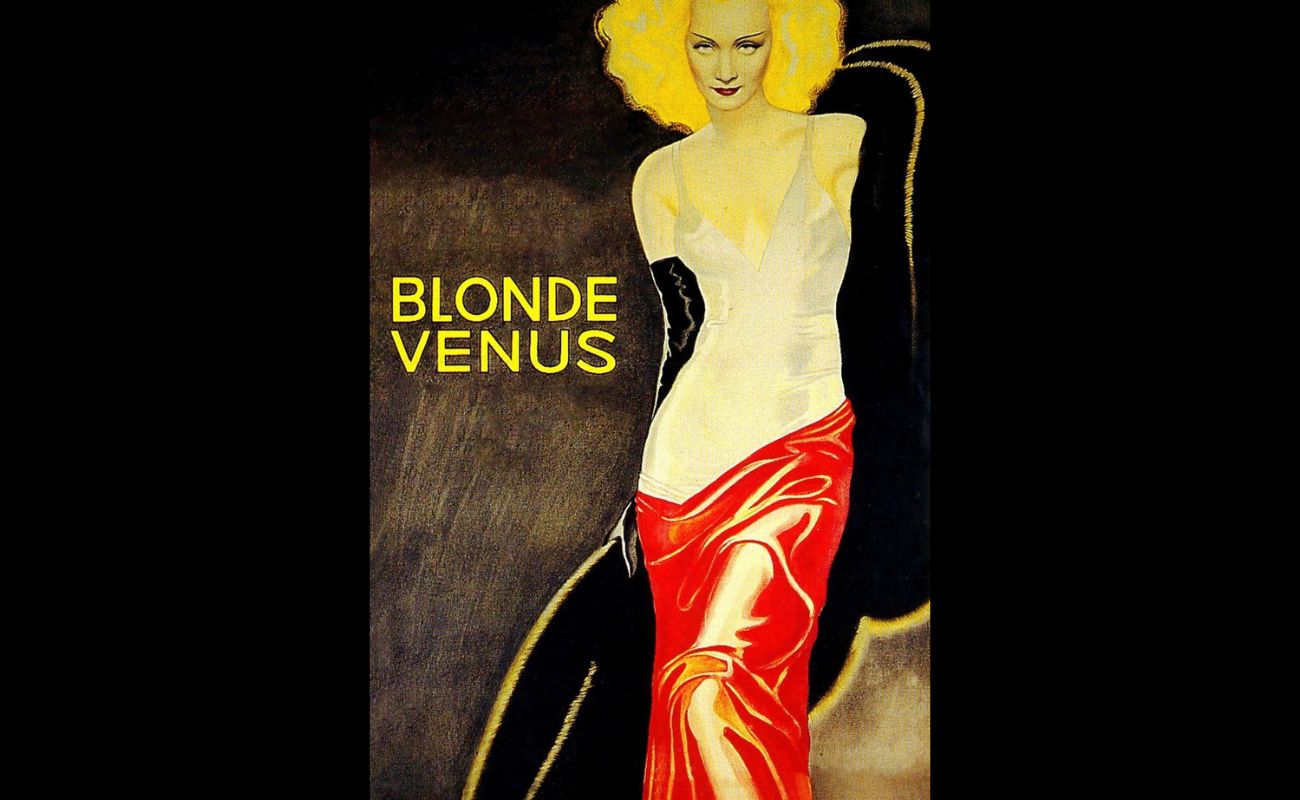
Blonde Venus is a classic movie that has captivated audiences since its release. Directed by the talented Josef von Sternberg, the film stars the legendary Marlene Dietrich in one of her most iconic roles. Released in 1932, Blonde Venus tells the gripping story of Helen Faraday, a woman who sacrifices everything to save her husband from a deadly illness. This melodrama takes viewers on a rollercoaster ride of emotions, as secrets are revealed and moral dilemmas are explored. With stunning cinematography and unforgettable performances, Blonde Venus remains a timeless masterpiece that continues to enthrall movie lovers to this day. In this article, we will delve into 42 fascinating facts about the making of Blonde Venus, offering a behind-the-scenes glimpse into this cinematic gem.
Key Takeaways:
- “Blonde Venus” is a classic movie that tells the story of a strong woman in the 1930s, challenging societal norms and leaving a lasting impact on popular culture.
- Marlene Dietrich’s captivating performance and the film’s thought-provoking storyline make “Blonde Venus” a timeless must-watch for fans of classic Hollywood films.
Early Inspiration
Blonde Venus was inspired by real-life events and the life of Marlene Dietrich, a famous German-American actress and singer.
Release Date
The movie Blonde Venus was released on September 3, 1932.
Director
The film was directed by Josef von Sternberg, known for his collaboration with Marlene Dietrich in several other movies.
Cast
The lead roles in Blonde Venus were played by Marlene Dietrich, Herbert Marshall, and Cary Grant in a supporting role.
Plot
The movie follows the story of Helen Jones, played by Marlene Dietrich, a German cabaret singer who marries an American scientist and moves to the United States.
Setting
The film is set in New York City and Germany, showcasing two contrasting worlds.
Music
Blonde Venus features a memorable musical score, composed by W. Franke Harling and John Leipold.
Iconic Song
The movie introduced the popular song “Hot Voodoo,” performed by Marlene Dietrich in a captivating cabaret scene.
Controversial Themes
Blonde Venus explores themes of female empowerment, sexuality, motherhood, and societal expectations, which were considered controversial at the time.
Academy Award Nomination
The film received an Academy Award nomination for Best Cinematography in 1933.
Costume Design
Marlene Dietrich’s costumes in the film were designed by Travis Banton, known for his lavish and glamorous creations.
Box Office Success
Blonde Venus was a commercial success, earning over $1 million at the box office.
Critical Reception
The movie received mixed reviews initially but has gained recognition and appreciation over the years.
International Popularity
Blonde Venus was released internationally and contributed to Marlene Dietrich’s global popularity.
Cultural Impact
The film has had a lasting impact on popular culture, influencing later films and inspiring fashion trends.
Transformation of Marlene Dietrich
In Blonde Venus, Marlene Dietrich undergoes a memorable transformation from a glamorous cabaret singer to a struggling mother.
Memorable Quotes
The movie is known for its memorable quotes, such as “I’m terribly happy and terribly unhappy” and “It took more than one man to change my name to White.
Emotional Performances
Blonde Venus showcases powerful and emotionally charged performances by Marlene Dietrich and the rest of the cast.
Critique of Society
The film subtly critiques societal norms and expectations, particularly concerning gender roles and marriage.
Cinematic Style
Blonde Venus is characterized by its stylish and visually stunning cinematography, typical of director Josef von Sternberg’s aesthetic.
Pre-Code Era
The movie was made during the pre-Code era of Hollywood, allowing for more explicit and daring content compared to later years.
Marlene Dietrich’s Performance
Marlene Dietrich’s performance in Blonde Venus is considered one of her finest and most memorable in her career.
Impactful Relationships
The relationships portrayed in the movie, particularly between Marlene Dietrich and Herbert Marshall’s characters, leave a lasting impact on viewers.
Symbolism
The film incorporates symbolism throughout, evoking themes of sacrifice, personal growth, and societal constraints.
International Success
Blonde Venus was well-received internationally and further solidified Marlene Dietrich’s status as an international star.
Theatrical Run
The movie had a successful theatrical run, attracting audiences with its intriguing storyline and captivating performances.
Influence on Film Noir
Blonde Venus is considered a precursor to the film noir genre, with its exploration of morally complex characters and shadowy cinematography.
Restoration Efforts
Over the years, efforts have been made to restore and preserve Blonde Venus, recognizing its cultural and historical significance.
Controversial Ending
The film’s ending, which challenged societal expectations and norms, sparked debates among critics and audiences alike.
Soundtrack Release
The movie’s soundtrack was released and became popular among fans of Marlene Dietrich and classic Hollywood music.
Style Icon
Marlene Dietrich’s fashion choices in the film cemented her status as a style icon, influencing trends in the 1930s and beyond.
Multilayered Characters
The characters in Blonde Venus are portrayed with depth, portraying complex emotions and inner conflicts.
Collaboration of Director and Actress
The collaboration between director Josef von Sternberg and Marlene Dietrich in Blonde Venus created a unique and captivating cinematic experience.
Emotional Rollercoaster
The film takes viewers on an emotional rollercoaster, with moments of joy, despair, and unexpected twists.
Legacy of Blonde Venus
Blonde Venus has left a lasting legacy in the history of cinema, influencing subsequent films and inspiring filmmakers.
International Film Festival Premieres
The movie has been showcased at various international film festivals, allowing new audiences to discover its brilliance.
Gender Dynamics
Blonde Venus challenges traditional gender dynamics, offering a nuanced portrayal of female strength and resilience.
Political and Social Context
The film reflects the political and social context of the early 1930s, addressing themes such as immigration and cultural differences.
Memorabilia Collection
Blonde Venus memorabilia, including posters and costumes, are highly sought after by film enthusiasts and collectors.
Viewing Recommendations
If you’re a fan of classic Hollywood films, Blonde Venus is a must-watch for its exceptional performances and thought-provoking storyline.
Timeless Entertainment
Despite being released almost 90 years ago, Blonde Venus continues to captivate audiences with its timeless entertainment value.
Rediscovering Blonde Venus
Rediscover the brilliance of Blonde Venus and witness Marlene Dietrich’s captivating performance that solidified her status as a Hollywood icon.
Conclusion
In conclusion, “Blonde Venus” is a captivating film that showcases the incredible talent of Marlene Dietrich and her ability to effortlessly embody complex characters. With its intriguing storyline, stunning visuals, and exceptional performances, this movie has left a lasting impact on audiences around the world. Whether you’re a fan of classic cinema or simply looking for an engaging story, “Blonde Venus” is definitely worth a watch. So grab some popcorn, settle in, and prepare to be transported to a world of glamour, passion, and unforgettable moments.
FAQs
What is the plot of “Blonde Venus”?
The plot of “Blonde Venus” revolves around the story of Helen Jones, a talented nightclub singer who gives up her career to take care of her ailing husband. When their family faces financial difficulties, Helen must make difficult decisions to provide for her son and ensure their well-being.
Who are the main actors in “Blonde Venus”?
Blonde Venus” stars the iconic Marlene Dietrich as Helen Jones alongside Herbert Marshall as Ned Faraday and Cary Grant as Nick Townsend. The film also features Dickie Moore as Johnny Faraday and Gene Morgan as Charlie Bowers.
When was “Blonde Venus” released?
“Blonde Venus” was released in 1932. It was directed by Josef von Sternberg and produced by Paramount Pictures.
Is “Blonde Venus” based on a true story?
No, “Blonde Venus” is not based on a true story. However, it does draw inspiration from societal issues of the time, such as the challenges faced by women in balancing career and family.
Is “Blonde Venus” available to stream online?
Yes, “Blonde Venus” is available to stream on various platforms, including but not limited to Amazon Prime Video, iTunes, and Google Play Movies. Check your preferred streaming service for availability.
Was this page helpful?
Our commitment to delivering trustworthy and engaging content is at the heart of what we do. Each fact on our site is contributed by real users like you, bringing a wealth of diverse insights and information. To ensure the highest standards of accuracy and reliability, our dedicated editors meticulously review each submission. This process guarantees that the facts we share are not only fascinating but also credible. Trust in our commitment to quality and authenticity as you explore and learn with us.


